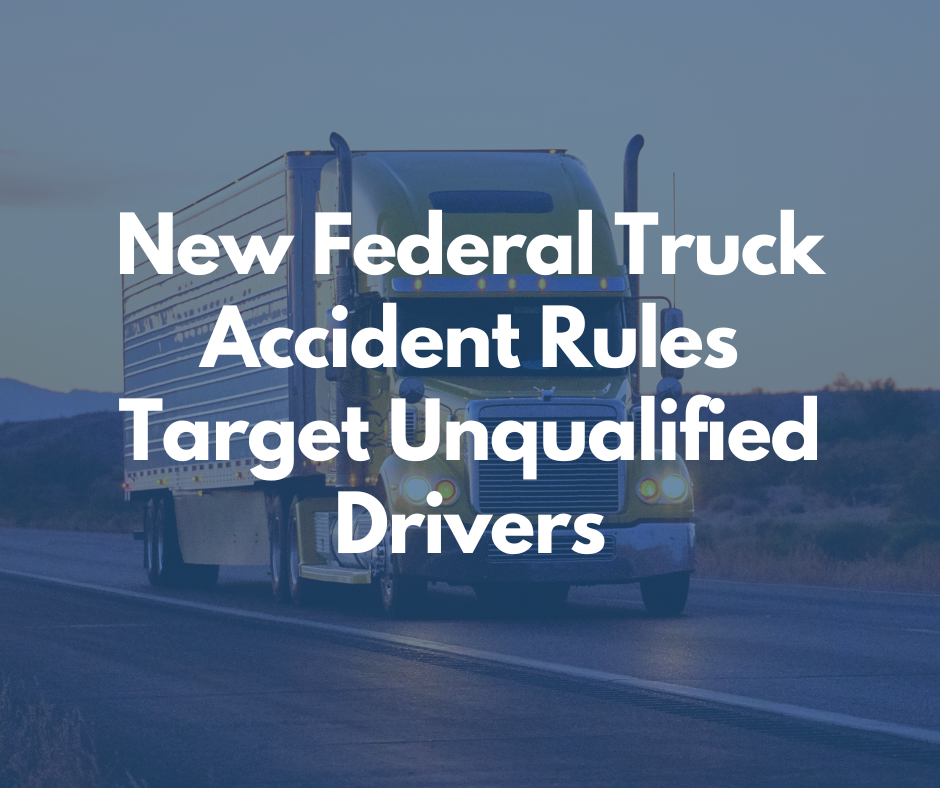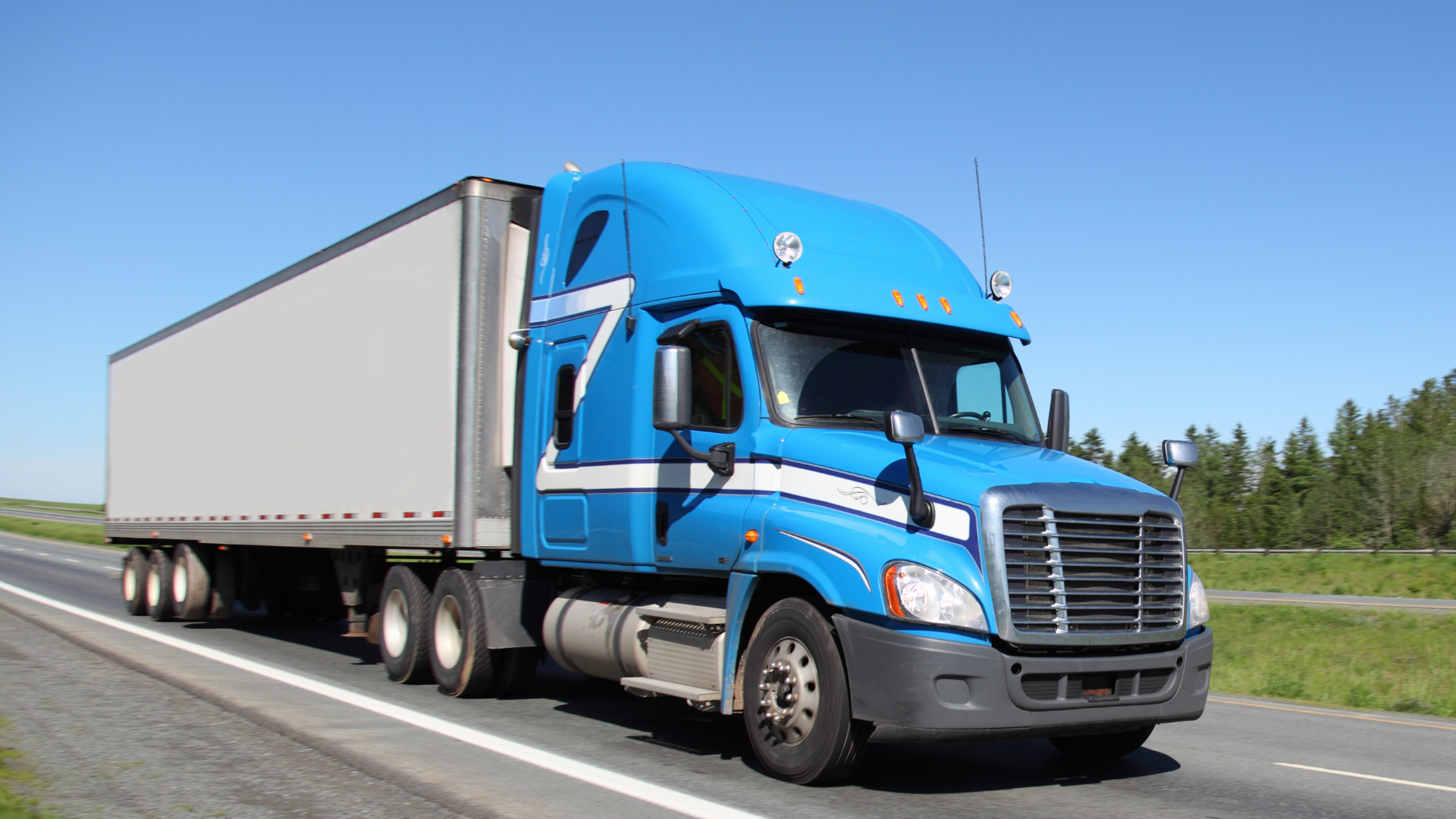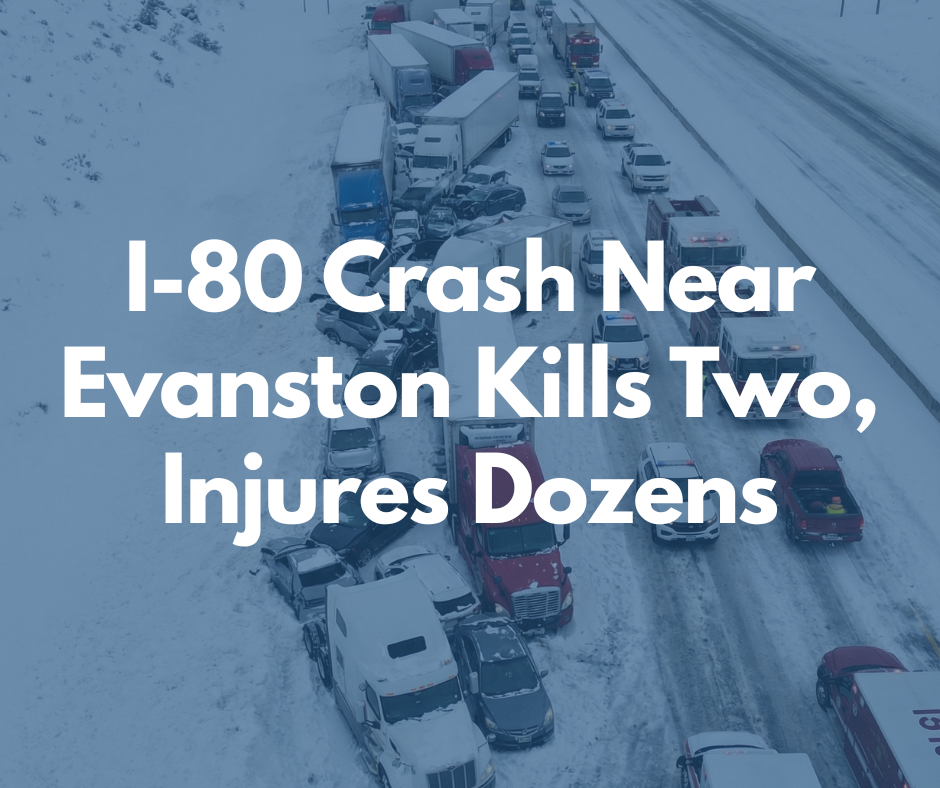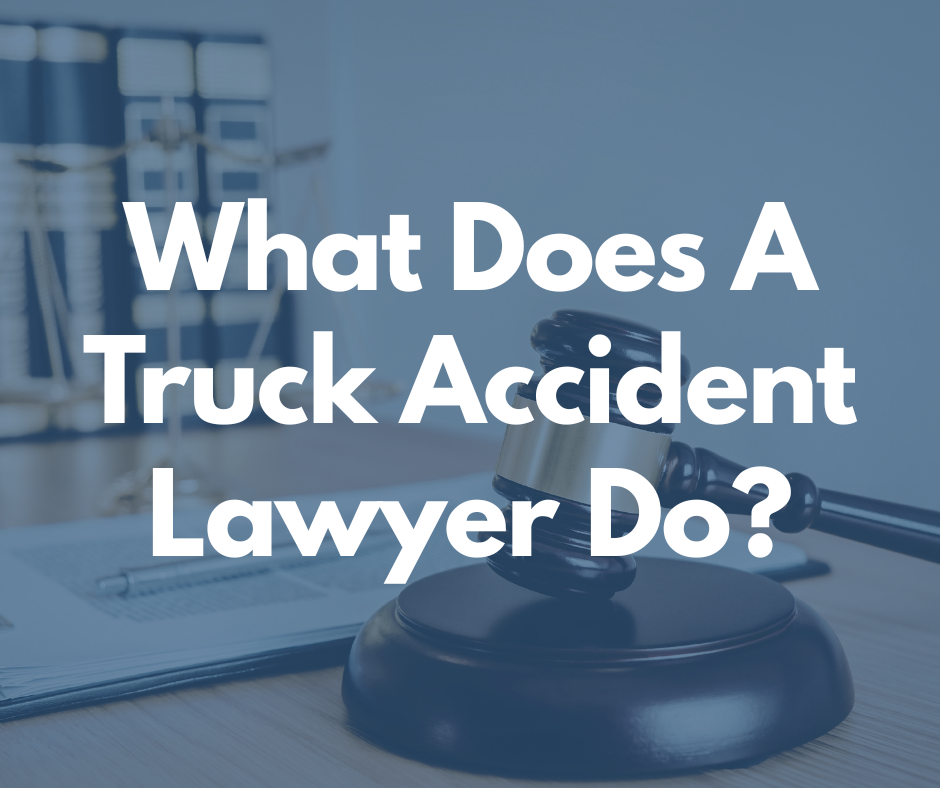
TL;DR - Key Takeaways
- Five fatal truck accidents caused by unqualified commercial truck drivers in 2025 killed 12 people, prompting emergency federal action
- FMCSA enacted emergency regulations September 29, 2025, targeting improperly licensed commercial truck drivers
- Colorado and Washington cited for CDL issuance violations alongside California, Texas, and Pennsylvania
- English Language Proficiency enforcement now places non-compliant truck drivers immediately out-of-service
- Approximately 200,000 improperly credentialed truck drivers will be phased out as licenses expire
- Changes strengthen accountability for trucking companies that fail driver vetting requirements
As a truck accident lawyer who holds a Commercial Driver's License myself, I understand the trucking industry from the inside. I know what qualifications drivers should have, what checks companies should perform, and when standards get ignored.

So when I saw that three people died on Florida's Turnpike in August 2025 after a semi-truck driver made an illegal U-turn, I was shocked to find out that the investigators discovered something alarming. The driver couldn't read road signs because he had failed basic English proficiency tests. He answered only two of 12 verbal questions correctly and identified just one of four traffic signs.
He should never have been operating an 80,000-pound tractor-trailer on our highways without the ability to understand the signs and their meanings.
That crash wasn't isolated. It was one of five fatal truck accidents since January 2025 involving improperly licensed commercial drivers. These crashes collectively killed 12 people and injured 15 others. Each one was preventable.
The Federal Motor Carrier Safety Administration responded with emergency regulations that fundamentally change how commercial driver's licenses get issued and enforced across the country.
What FMCSA Found During Its Nationwide Audit
The 2025 audit uncovered systemic failures in state CDL programs. In California, approximately 25 percent of non-domiciled CDLs reviewed were improperly issued. Some licenses remained valid for four years beyond the expiration of legal authorization.
Colorado and Washington, where we represent truck accident victims, were identified as having licensing patterns inconsistent with FMCSA regulations. Pennsylvania, South Dakota, and Texas faced similar findings.
These weren't minor paperwork errors. States issued CDLs to ineligible drivers, failed to verify credentials properly, and allowed licenses to remain active after they should have been revoked. Programming errors, insufficient training, and weak oversight all contributed to dangerous conditions on our roads.
According to the FMCSA's emergency rule documentation, driver record checks revealed widespread compliance failures that created imminent safety hazards. As truck accident lawyers who investigate these cases, we've seen how these systemic breakdowns put unqualified drivers behind the wheel of 18-wheelers.
The Fatal Crashes That Sparked Action
The Austin, Texas crash on March 14, 2025 involved 17 vehicles and killed five people, including two children. The commercial driver had been improperly issued a standard CDL, lacked a current medical certificate, and had violated hours-of-service regulations multiple times in the 11 days before the crash.
In Alabama, a driver on his third day struck four vehicles stopped at a red light with his tractor-trailer, killing two people. He had previously failed a skills test for speeding.
These weren't accidents in the truest sense. They were predictable results of a broken system that allowed unqualified drivers to operate massive 18-wheelers on our highways.
Emergency Regulations Effective September 29, 2025
The FMCSA's emergency interim final rule became effective immediately because regulators determined that waiting posed an imminent hazard to public safety.
Non-citizens are now ineligible for non-domiciled commercial learner's permits and CDLs unless they hold specific employment-based visas. Simply having an Employment Authorization Document no longer qualifies someone for commercial driving credentials.
States must verify immigration status using the Department of Homeland Security's verification system before issuing any non-domiciled CDL. Licenses expire when employment visas end or in one year, whichever comes first. Drivers must renew in person annually.
All states must immediately pause non-domiciled CDL issuance until they demonstrate full compliance. This affects approximately 200,000 current CDL holders and 20,000 commercial learner's permit holders. About 194,000 of these drivers will be phased out over two years as credentials expire.
For Colorado, Washington, Oregon, and Wyoming residents, this means safer roads as unqualified semi-truck drivers are systematically removed from the commercial vehicle fleet.
English Language Proficiency Now Strictly Enforced
English proficiency has been a federal requirement for commercial drivers since 1937 under 49 CFR § 391.11(b)(2). Drivers must read and speak English sufficiently to understand highway traffic signs, respond to official inquiries, and complete required reports.
In 2016, enforcement guidance changed. Inspectors stopped placing drivers out-of-service for English proficiency violations. That created a decade-long gap that compromised highway safety.

On May 20, 2025, FMCSA rescinded that guidance and issued new enforcement protocols. Beginning June 25, 2025, commercial drivers who fail English Language Proficiency assessments are immediately placed out-of-service.
Roadside inspections now use a two-step process. First, inspectors conduct a conversational interview in English without interpreters or translation tools. Drivers who pass are then tested on reading and interpreting standard U.S. traffic signs. Failing either step results in immediate out-of-service status.
This addresses fundamental safety concerns. Can a tractor-trailer driver understand "Bridge Out Ahead" or "Wrong Way"? Can they respond to questions about their logbook or cargo? These communication abilities protect everyone on the road.
The FMCSA's driver qualification requirements provide detailed guidance for companies conducting assessments.
If you or a loved one was injured in a crash with a commercial truck, call us at 866-377-3800 or schedule a free consultation at www.metierlaw.com.
Trucking Company Liability Under New Standards
These regulatory changes create stronger accountability for trucking companies that fail proper driver vetting.
Under federal regulations, motor carriers must verify that drivers meet all commercial driver qualifications before putting them behind the wheel of a semi-truck. This includes checking driving records, verifying valid CDLs, ensuring medical certification, and confirming English proficiency.
We've seen this pattern repeatedly as truck accident lawyers. A company hires drivers quickly without thoroughly checking credentials. They don't verify CDL validity. They don't confirm drivers can read road signs or communicate in English. Then when that driver causes a catastrophic truck accident, the company claims ignorance.
These new regulations make that excuse much harder to use. Driver qualification is non-negotiable. States must verify credentials properly. Companies must conduct thorough assessments. Inspectors must enforce standards consistently.
For victims of truck accidents caused by unqualified drivers, this regulatory framework provides important evidence of negligence. When we investigate crashes and discover qualification violations, those findings demonstrate that crashes weren't just unfortunate events but foreseeable results of companies cutting corners on safety.
Each case depends on unique facts including injury severity, available insurance coverage, and evidence strength. Not every truck accident involving an unqualified driver guarantees maximum compensation. But when we prove companies knowingly violated federal driver qualification requirements, it strengthens victims' positions significantly.
State Enforcement Actions Moving Forward
California faces immediate consequences. The state has 30 days to comply or face withholding of federal highway funds starting at $160 million in year one, doubling in year two. California must identify all non-compliant CDLs, revoke improper licenses, and implement proper verification systems.
Colorado, Washington, Pennsylvania, South Dakota, and Texas received clear warnings to find improperly issued CDLs and revoke those licenses immediately. The nationwide audit continues for states not yet fully reviewed.
For those who regularly drive in Colorado and Washington, this should be reassuring. State agencies are being held accountable for licensing failures that allow dangerous 18-wheeler operators on the roads. The federal government provides both framework and enforcement to ensure states take commercial driver qualifications seriously.
States must pause non-domiciled CDL issuance until demonstrating compliance, implement electronic immigration verification systems, and ensure licenses automatically expire when authorizations end.
More details are available at the FMCSA newsroom.
What These Changes Mean for Injury Victims
If you've been injured in a truck accident caused by an unqualified driver, these regulatory changes validate what you may have suspected. The driver might not have been properly qualified. The company might have failed adequate screening. The state might have violated federal standards.
These regulations provide clearer standards to hold negligent parties accountable. When truck accident lawyers investigate crashes now, we examine whether drivers held properly issued CDLs, passed required assessments, and whether companies verified credentials properly.

We request driver qualification files to see what documentation companies actually reviewed. We obtain inspection records to check for previous assessment failures. We verify with state licensing agencies whether CDLs complied with federal regulations.
This investigative work can reveal violations that strengthen cases significantly. But every truck accident case differs. Injury severity, insurance coverage, evidence strength, and other factors affect outcomes. Proving a driver was unqualified doesn't guarantee specific results.
What these violations provide is evidence of negligence. They show crashes weren't bad luck but results of systemic failures by companies and agencies that should have prevented unqualified drivers from operating tractor-trailers commercially.
Frequently Asked Questions
What should I do if I was injured by a commercial truck driver who may not have been properly qualified?
Contact an experienced truck accident lawyer immediately. We investigate whether drivers held valid CDLs, passed required assessments, and met federal qualification standards. We examine whether trucking companies conducted proper vetting before allowing someone to operate a semi-truck. This information must be preserved quickly because companies maintain certain records for limited periods. Documentation can disappear without prompt legal action to preserve it.
How do new regulations affect truck accidents that happened before September 2025?
The emergency rule effective September 29, 2025 doesn't retroactively invalidate previously issued CDLs. However, if crashes occurred before the rule change and investigations reveal drivers held improperly issued licenses even under old standards, that remains evidence of negligence. English Language Proficiency enforcement beginning June 25, 2025 applies to subsequent crashes. Each case requires individual analysis based on regulations effective at the time. A truck accident lawyer can determine which standards apply to your specific situation.
Will these changes make roads safer or create driver shortages?
FMCSA analysis shows the rule generates positive benefits if it prevents just 0.085 fatal crashes annually. Five fatal truck accidents involving improperly licensed drivers occurred in eight months of 2025 alone. Safety benefits clearly exceed costs. The approximately 200,000 affected drivers represent only five percent of 3.8 million active interstate CDL drivers. FMCSA expects freight markets to adjust during the two-year phase-out just as the industry added capacity during COVID-19.
Can trucking companies still hire qualified foreign-born drivers?
Yes. Regulations don't prohibit hiring foreign-born drivers. They require non-domiciled CDL holders to meet specific visa requirements and pass verification checks. Companies can hire drivers with H-2A agricultural visas, H-2B temporary worker visas, or E-2 treaty investor visas. States must verify credentials properly and licenses require annual in-person renewal. These requirements ensure only legally authorized, properly vetted drivers operate 18-wheelers commercially.
Let's Talk About What Happens Next
When you've been seriously injured by a commercial truck, you face medical bills, lost wages, pain, and uncertainty. You shouldn't navigate complex federal trucking regulations alone while recovering.
Insurance companies representing trucking companies have legal teams working to minimize liability. They look for any reason to deny claims or reduce compensation. They assume most people don't understand detailed requirements of FMCSA regulations.
Experience with trucking law makes a real difference. As a truck accident lawyer who holds a CDL, I know these regulations from a driver's perspective. I understand what should happen during driver qualification, what documentation companies must maintain, and what violations indicate negligence.
We know how to obtain and review driver qualification files for compliance failures. We know which questions expose corner-cutting by trucking companies. We know which experts to hire for analyzing whether drivers were properly qualified and crashes were preventable.
We've represented victims of truck accident victims across Colorado, Washington, Oregon, and Wyoming. Whether your case requires the guidance of a Denver or Portland truck accident lawyer, we understand the physical, emotional, and financial toll these crashes take. We're committed to holding negligent parties accountable so you can focus on healing.
These federal regulations will make roads safer over time by removing unqualified semi-truck and tractor-trailer drivers from our highways. For victims of past crashes, they provide clearer standards for proving trucking company liability. If you've been injured, you deserve a truck accident lawyer who understands both the human cost and the complex regulations designed to prevent these tragedies.
The National Highway Traffic Safety Administration provides additional resources about commercial vehicle safety standards.
Call Metier Law Firm at 866-377-3800 or schedule your free consultation today at www.metierlaw.com.
Disclaimer: Past results discussed should not be considered a guarantee of your results as the factors of every case are individually unique. This content is for informational purposes only and does not constitute legal advice. Consult a qualified attorney from Metier Law Firm regarding your individual situation for legal advice.
Tell Us About Your Case – Free Case Review with a Truck Accident Lawyer
Tell Us About Your Case – Free Case Review with a Personal Injury Lawyer
(866) 377-3800Our Locations
.webp)
Do I have a Case?
How Much Should I Be Offered?
Do I Need an Attorney?
If these questions have crossed your mind, let us help. You may need a little direction or may not need an attorney at all, but you deserve to be confident knowing your options. We can provide you with information about our Attorneys of the West® accident investigations and legal services. Your confidential consultation with us is totally free.
Keep up with us!

.svg)




